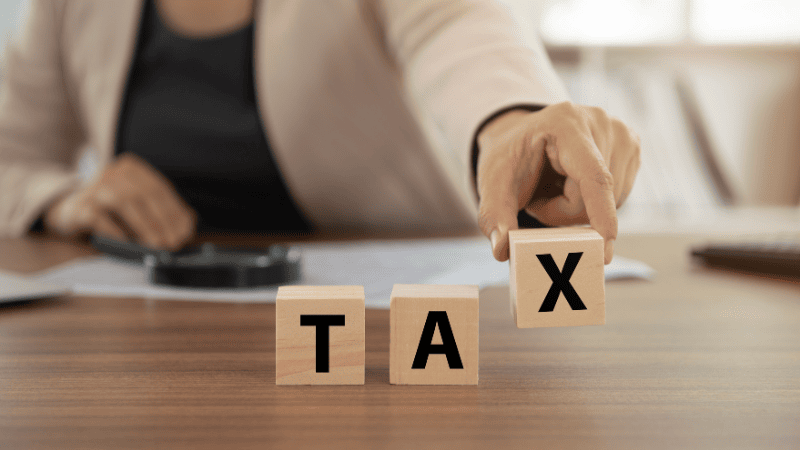As a rental property owner, tax time is more than just W-2s and receipts. It’s a chance to maximize deductions, reduce taxable income, and keep more of your cash flow in your pocket.
But with multiple properties, income types, and expense categories, it’s easy to miss valuable write-offs or forget key documents—especially if you wait until the last minute.
That’s where this landlord tax prep checklist comes in. Whether you own one property or a growing portfolio, this guide will help you get organized, file accurately, and save money in 2025.
🧾 1. Collect Your Income Records
Start by gathering all rental income received in 2024. This includes:
- Monthly rent payments (from tenants or property managers)
- Late fees or pet fees
- Short-term rental income (Airbnb, Vrbo, Booking.com)
- Lease termination or early move-out fees
- Utility reimbursements or laundry machine revenue
Documentation Tips:
- Use your property management statements or bank records
- Download Airbnb/Vrbo tax summaries
- Separate income by property for multi-unit portfolios
💼 2. Organize Operating Expenses
Rental property expenses are 100% deductible when properly documented. Make sure you’ve categorized and recorded:
- Mortgage interest (Form 1098)
- Property taxes
- Insurance premiums
- Property management fees
- Utilities paid by landlord
- Maintenance and repairs
- Legal and accounting fees
- Advertising and leasing expenses
- HOA or condo dues
- Software subscriptions (e.g., Stessa, Buildium)
Pro tip: Keep digital receipts for all expenses and use a tool like QuickBooks or REI Hub to automate categorization by property.
🛠 3. Track Capital Improvements
Major upgrades must be capitalized and depreciated—not expensed in full the year incurred.
Examples include:
- New roof
- HVAC or water heater replacement
- Kitchen or bathroom remodels
- Room additions or structural changes
Create a separate log for these improvements, noting:
- Description of work
- Cost
- Date placed in service
- Contractor invoices or payment receipts
These items will affect your depreciation schedule.
🧮 4. Calculate Depreciation
Each property (excluding land) should be depreciated over 27.5 years for residential rentals.
If you purchased a new property in 2024:
- Pull your closing statement (HUD-1 or ALTA)
- Separate land vs. building value (often on property tax records)
- Begin depreciation the month it was placed in service
If you completed a cost segregation study, include the breakdown by asset class.
🧾 5. Gather Loan & Interest Docs
Lenders typically issue Form 1098 for mortgage interest. Include this for each financed property.
If you used:
- A DSCR loan
- HELOC
- Private or seller financing
Gather the annual interest summary from your lender or loan servicing platform.
Interest on rental-related loans is deductible.
💡 6. Prepare Mileage and Travel Logs
If you drove for rental-related tasks, you may be able to deduct:
- Site visits
- Tenant meetings
- Trips to the hardware store or contractor meetings
Use either:
- Standard mileage rate (67 cents per mile in 2024), or
- Actual expenses (fuel, maintenance, insurance)
Track mileage with apps like MileIQ or Everlance, or use a spreadsheet with date, purpose, and miles.
🖥 7. Gather Forms and Documents
Here’s what your CPA will need to prepare your return:
- Last year’s tax return (for carryover losses or depreciation schedules)
- W-9s or 1099s for contractors paid over $600
- 1099-NEC from property managers (if they paid vendors on your behalf)
- 1098 forms (mortgage interest)
- Schedule E worksheet or rental property income statement
- Receipts and invoices for all deductions
- Entity documents (for LLCs or partnerships)
🏢 8. Prepare for LLC or Entity Filings
If you own your rentals through an LLC, S-Corp, or partnership, there may be:
- Separate filing deadlines (March 15 for partnerships and S-Corps)
- Required K-1s for each member
- State-level business tax filings or franchise taxes
Check with your CPA about your federal and state filing requirements, and file early to avoid penalties.
💬 9. Consult a Real Estate Tax Pro
Tax laws change every year—and your strategy should too. A real estate-focused CPA can help you:
- Identify overlooked deductions
- Strategically time improvements or refis
- Consider advanced strategies (cost segregation, bonus depreciation, 1031 exchanges)
- Ensure your LLC or entity structure is optimized
Bonus: They’ll also help reduce audit risk by properly categorizing your deductions and keeping clean records.
✅ Landlord Tax Prep Checklist Summary
Here’s a quick checklist you can print or save:
✅ Rental income by property
✅ Operating expenses (organized by category)
✅ Capital improvements log
✅ Depreciation records
✅ Loan interest forms (1098 or lender statement)
✅ Mileage and travel documentation
✅ 1099s, 1098s, W-9s, and last year’s return
✅ Entity documents and K-1s (if applicable)
✅ CPA consultation booked
Final Thoughts
Taxes don’t have to be stressful—if you plan ahead. This year, give yourself the gift of clean books, proper documentation, and a game plan that maximizes deductions while staying audit-proof.
By using this landlord tax prep checklist, you’ll save time, reduce errors, and keep more of your rental income where it belongs: working for you.



